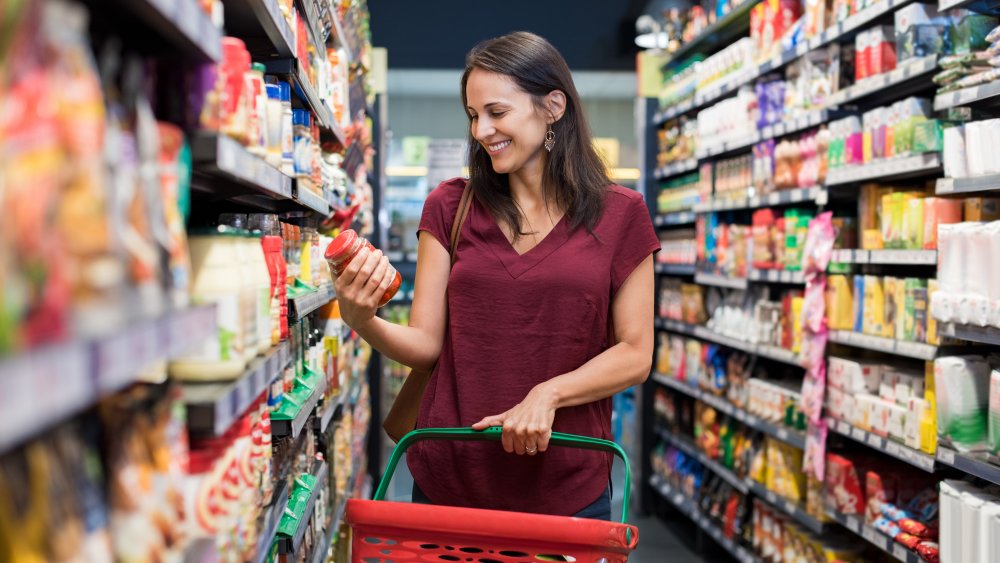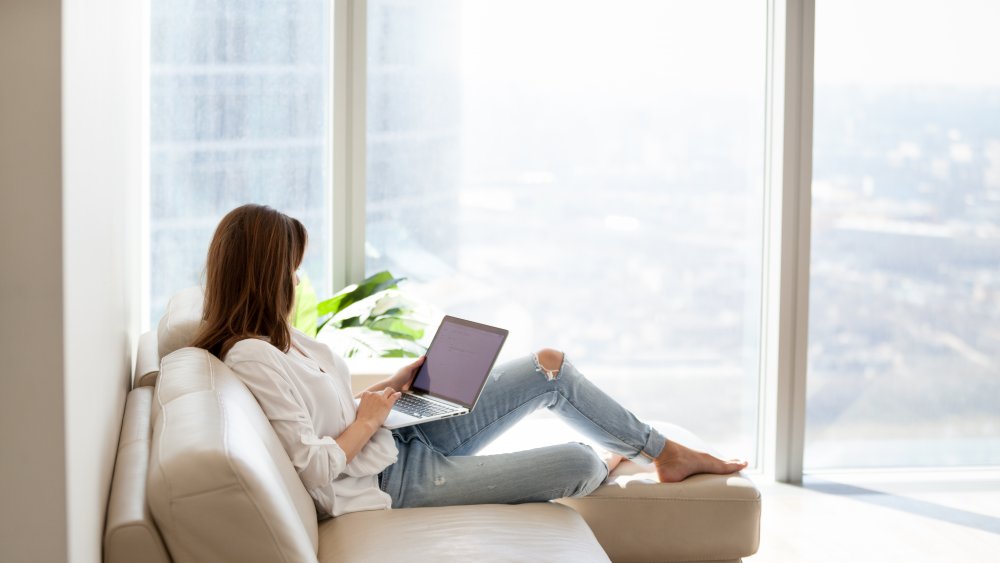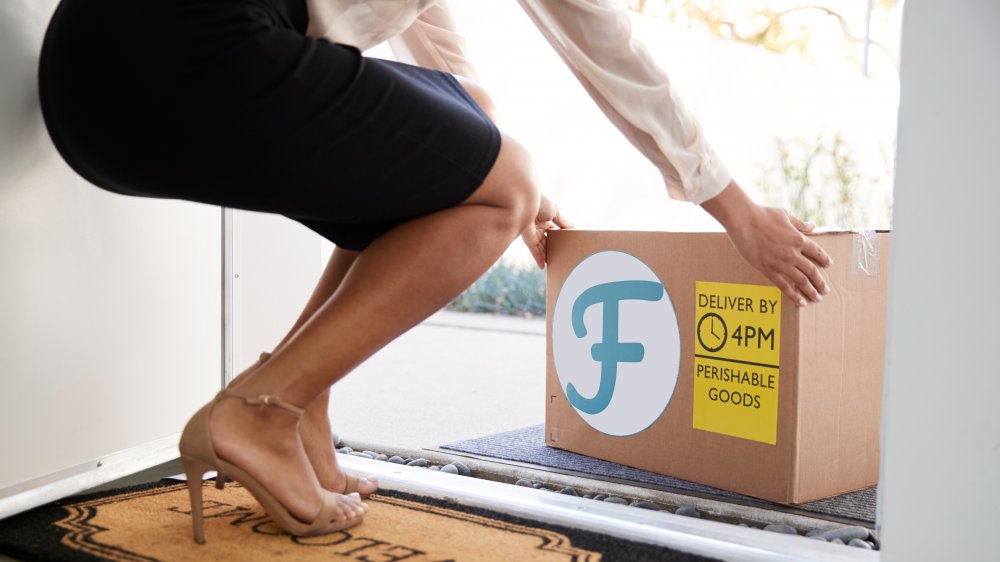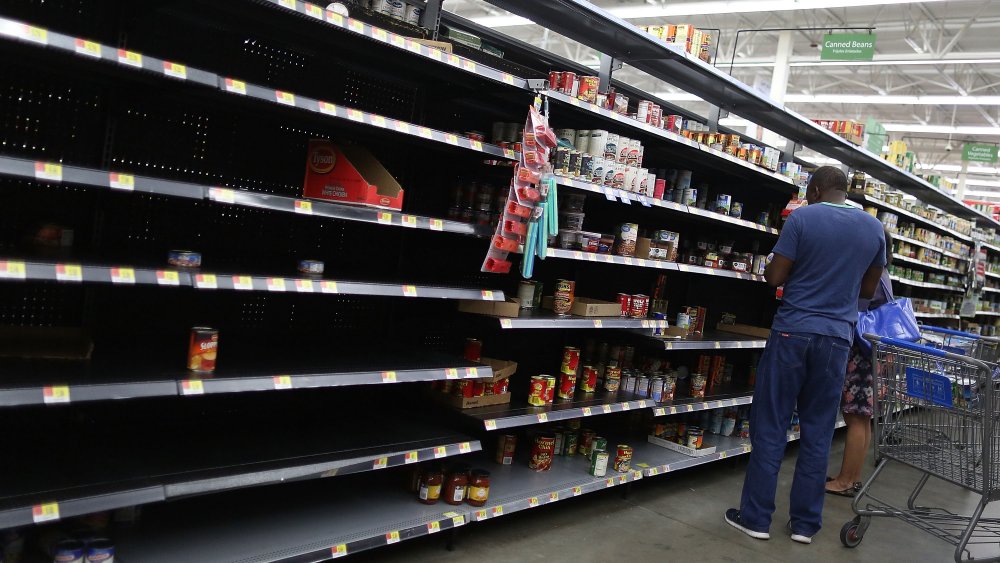Here's Why You Should Avoid The Grocery Store For Two Weeks
While more and more people are social distancing and working to flatten the curve, we unfortunately aren't there yet. White House officials are warning that we need to brace ourselves for a tough two weeks ahead of us as the pandemic is expected to hit its peak in the U.S. somewhere in that time.
In a press conference on April 4, White House coronavirus response coordinator Dr. Deborah Birx said (via Deadline) that it's "extraordinarily important" for people to stay at home for the next two weeks. While it was previously recommended that people stay at home for all but essential business and errands, such as grocery shopping, Birx said that people should avoid leaving their homes for any reason until mid-April. "This is the moment to not be going to the grocery store, not going to the pharmacy, but doing everything you can to keep your family and your friends safe," she said.
President Donald Trump warned that the next two weeks will be particularly hard
There are more than 330,000 confirmed cases of coronavirus in the U.S. and more than 8,900 deaths, according to the CDC, which is updating numbers daily. According to The New York Times, though, those numbers may be even higher. The outlet reported that, as of the morning of April 7, there are at least 367,000 across the U.S. (including Washington D.C. and four U.S. territories) who have tested positive for COVID-19, with more than 11,000 dead.
At the press conference, President Donald Trump warned that the following two weeks are critical. "This will probably be the toughest week — between this week and next week," he said.
Staying at home is the best way we can combat coronavirus
While there are a lot of precautions we can take to avoid contracting and spreading coronavirus, such as washing our hands, the most effective way to flatten the curve is for people to avoid going outside of their own homes. Going to the grocery store can still pose a threat — even if you're wearing a face mask. Since high-quality masks are in short supply and are needed for frontliners, people are now being encouraged to make their own DIY face masks. While these masks can provide a measure of protection, they shouldn't make us complacent. Birx warned in a daily briefing (via The Hill) that people shouldn't "get an artificial sense of protection because they're behind a mask."
While the recommendation for people to stand six feet apart while in public can also help avoid the spread of COVID-19, this isn't a substitute for social distancing, either, as particles from sneezes can travel further than six feet. Standing six feet apart when it's absolutely necessary to go outside can protect you from the largest particles but again, the safest place to be right now is at home.
Get your groceries delivered instead of going to the grocery store
If you're running low on food and think there's no possible way to avoid the grocery store in the next couple weeks, consider having your groceries delivered. This not only cuts down on human contact and slows the spread of COVID-19, but is the safest option. While some people may be worried about the potential of contracting coronavirus from their delivery driver, the coronavirus pandemic has changed how delivery services operate, and most services are now offering contactless delivery.
Groceries dropped off at your door should be safe, according to experts. Donald W. Schaffner, a food microbiologist and professor, told The Guardian that we don't need to worry about sanitizing groceries. "Right now there's no evidence that [the virus is] spread through food," he said. "There's no evidence that it's spread through food packaging. That doesn't mean that we might not learn new evidence tomorrow that would change our thoughts on that, but right now that's what we believe."
If you really want to play it safe, nurse and infection preventologist Lauren Bryan told Health that you can use a disinfectant to clean plastic and cardboard packaging. Don't use it on food, though. "If you do, there's a higher chance of getting sick from ingesting [chemicals] rather than from COVID-19," Dr. Jaimie Meyer told the outlet.
Try to avoid panic-buying
If you do get groceries delivered, try to avoid buying too much. While it can be tempting to have food and supplies delivered for several weeks, this leads to other problems. "Panic-buying happens when people worry about the scarcity of supplies," clinical psychologist Steven Taylor told NBC.
He added, "This creates a sense of urgency and leads people to over-buy, that is buying more supplies than they really need, just to be on the safe side. This can create real shortages because people buy more than they need."
While not going to the grocery store will be difficult, it really is for the best. If everyone works together to flatten the curve, it will save lives.




